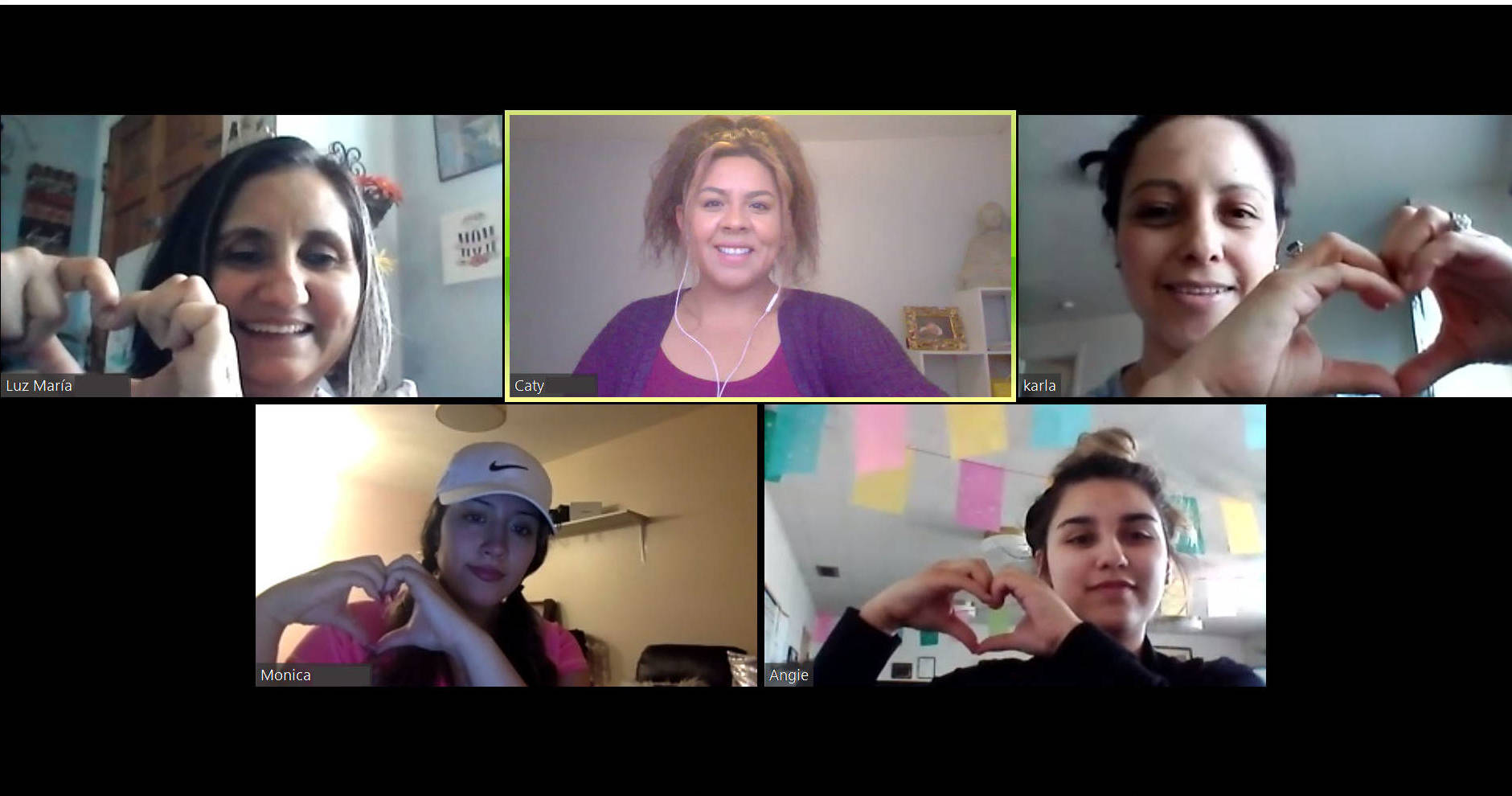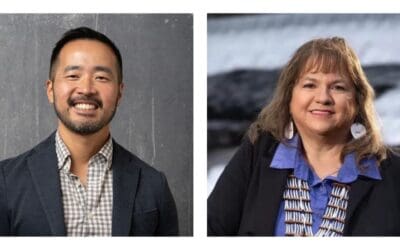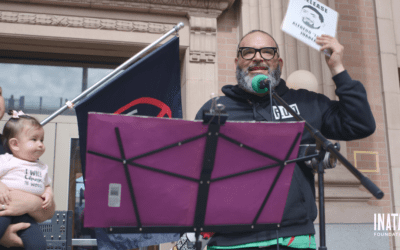Until Feb. 1, 2023, we were Group Health Foundation. This post was written under our former identity. To learn more about our new name, read our announcement here.

Caty Padilla describes the Nuestra Casa team as “small, but mighty.” The organization is meeting regularly to make sure they are up-to-date on what’s happening in their community. (Photo: Nuestra Casa)
Group Health Foundation established an Equitable Response and Recovery Fund in response to the COVID-19 pandemic and deployed $5 million in direct and flexible grants to more than 75 community-based, culturally specific, and human service hub organizations throughout Washington. Nuestra Casa and La Casa Hogar are grantees.
In the first few weeks of the COVID-19 outbreak, assurances that the food supply chain was not at risk and that business would go on as usual did not sit right with Caty Padilla. As someone who grew up in the Yakima Valley and serves as the executive director of Nuestra Casa, a nonprofit working with Latinx and immigrant communities in Sunnyside and the surrounding areas, Caty knows many people who work in farming and agriculture. “It’s unsettling that these workers are considered as essential, but are not treated as essential,” she said.
Nuestra Casa provides social justice and support services through education, citizenship, and English and Spanish literacy programs. Through the people they serve, they heard stories about employers installing hand sanitizing stations, yet doing nothing about physical distancing. They heard about companies offering cash incentives for people who show up to work, instead of paying for sick leave. They saw coming what is now being reported in the news: Infections spreading in food processing plants, packaging warehouses, and farms.
“A lot of our families are out there working because they have to. They’re not receiving proper equipment or information on how to protect themselves or their families,” Caty said.
As the crisis began to unfold, Nuestra Casa partnered with La Casa Hogar on a radio campaign for Spanish-speaking communities. They worked with three local stations and made daily appearances from late March to early April when information about COVID-19’s spread was rapidly changing. The two organizations covered topics such as how infection happens, who’s most at risk, and where to report employers violating state orders.
The local Spanish-language newspaper was doing a good job, Caty said, but it would take a few days for translation, which meant people received outdated information. Social media channels largely offered information about areas outside of Central Washington. And public health materials translated into Spanish were too formal. “We didn’t even catch the translation issues initially until we spoke to and got feedback from community,” she said.
Caty understands the difficult decisions families are facing right now and wants to make sure they are receiving accessible and culturally relevant information so they can make informed choices and stay healthy. She said community members who heard her on the radio said they trusted the information because they trust Nuestra Casa. She urges government and other leaders working through response and recovery to also earn the trust of community.
“Move rural communities forward, including making agricultural workers a priority,” Caty said. “Learn about what these workers do and how their lives are impacted, rather than making decisions at the top. In fact, these workers should be at the top.”
Nuestra Casa is soon relaunching their classes as online courses and is expanding their work now they have accreditation from the U.S. Department of Justice to provide immigration services, including legal representation for low-income individuals. The organization will continue work through the pandemic by folding community-relevant information into all their services.
Stay in touch with Nuestra Casa by visiting their website and following them on Facebook.



